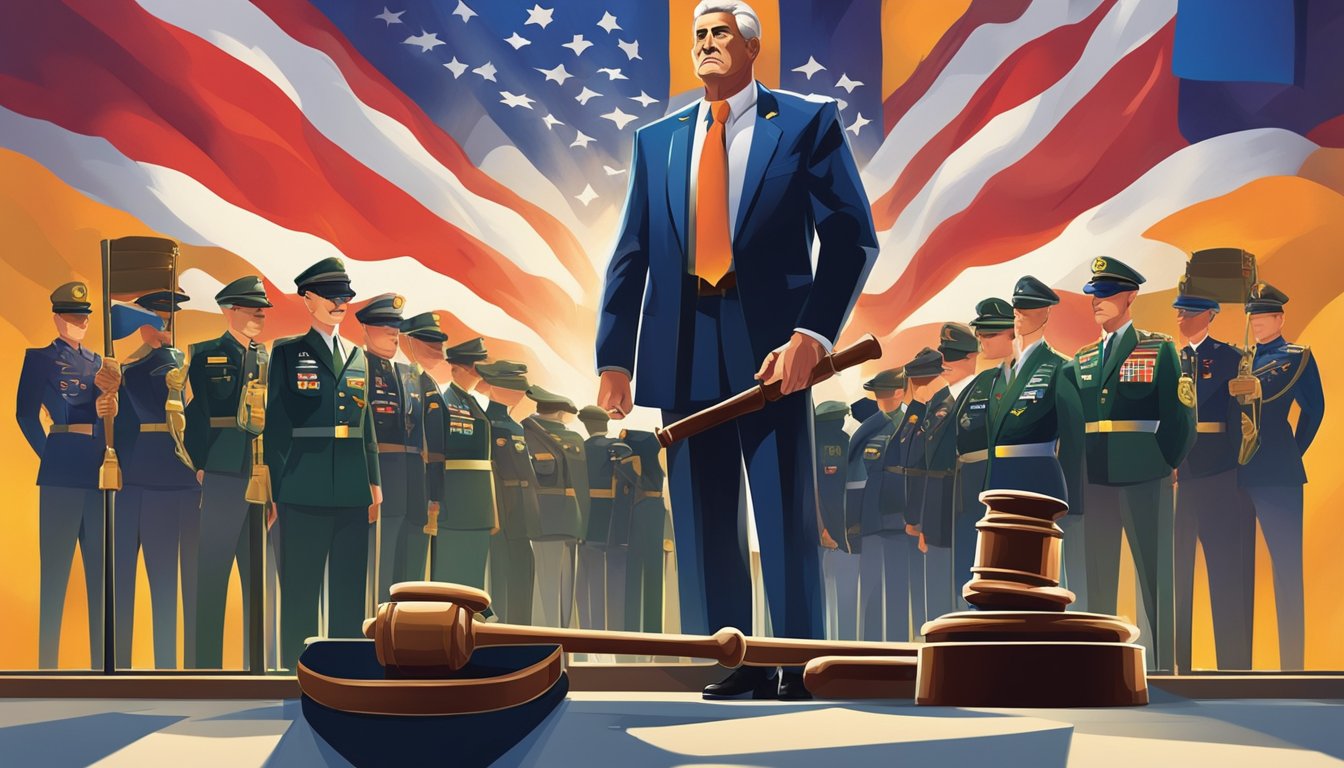The Navy-Marine Corps Court of Criminal Appeals has overturned the felony convictions of retired Marine Gunnery Sergeants Daniel Draher and Joshua Negron, who were implicated in the case known as the “MARSOC 3.” The court’s decision was based on findings that a senior legal officer within the Marine Corps had improperly influenced the legal proceedings.
Background of the Incident
Draher and Negron, along with Navy Chief Petty Officer Eric Gilmet, earned the label of the “MARSOC 3” while they were stationed in Iraq with the 3rd Marine Raider Battalion.
The incident in question took place on January 1, 2019, during a confrontation outside a bar in Erbil.
During this incident, Negron struck former Green Beret Rick Anthony, causing him to fall.
After the altercation, the three servicemen transported Anthony back to his on-base living quarters, where a co-worker attended to him.
As Anthony developed breathing issues, Gilmet began administering medical treatment.
Unfortunately, Anthony was later evacuated to a medical facility in Germany, where he passed away on January 4, 2019.
Appellate Court Ruling
In a trial conducted in February 2023, a military jury cleared both Draher and Negron of serious charges such as involuntary manslaughter, negligent homicide, and dereliction of duty linked to Anthony’s death.
However, they were convicted of violating General Order No. 1 by consuming alcohol.
Despite not facing punitive actions under the Uniform Code of Military Justice due to the jury’s verdict, their convictions were still classified as felonies in both state and federal courts, a point highlighted by their attorney, Phillip Stackhouse.
Following the appellate court’s ruling, Stackhouse expressed his gratitude for the decision, noting that Draher and Negron are eager to address the negative consequences of their felony records and move forward with their lives and careers intact.
Concerns About Command Influence
On December 27, the court identified instances of unlawful command influence stemming from comments made by the deputy director of the Marine Corps Judge Advocate Division in November 2021.
Those remarks implied that military attorneys might face career repercussions for providing robust defense for their clients.
The court stressed the damaging effects of such influences on the integrity of military justice, asserting that military judges are meant to safeguard against such interference, while defense counsel often find themselves at the forefront of the consequences.
MARSOC acknowledged the appellate court’s decision, affirming their respect for the judicial process and confirming the dismissal of charges against Draher and Negron.
The prosecution faced ongoing scrutiny over allegations of unlawful command influence, particularly arising from a November 2021 meeting.
During this session, Marine Colonel Christopher Shaw, then responsible for assigning Marine judge advocates, reportedly conveyed that defense attorneys could experience job insecurities.
Captain Matthew Thomas, one such attorney, detailed how Shaw suggested that lawyers representing Marines in controversial cases might encounter challenges in their careers.
In response, Shaw defended his remarks, stating he did not mean to issue a threat but rather wanted to clarify the lack of career protection for lawyers from external pressures.
However, an investigation into his comments did not reach a definitive conclusion on whether they constituted unlawful influence.
In a pivotal ruling in February 2022, a military judge dismissed all charges against Gilmet, acknowledging that Shaw’s comments demonstrated both actual and perceived unlawful command influence.
Later, an appellate court reinstated those charges, asserting that the comments would not have a substantial effect on the proceedings.
Ultimately, in August 2023, the U.S. Court of Appeals for the Armed Forces dismissed the charges against Gilmet once again, emphasizing that the prosecution failed to show the potential unlawful command influence would undermine the judicial process.
The recent ruling by the Navy-Marine Corps Court of Criminal Appeals reiterated the severity of Shaw’s statements regarding promotions for defense attorneys involved in high-profile cases.
This raised concerns about the belief that these attorneys might feel shielded from external pressures, a notion that, according to the court, was deeply misguided.
Source: Taskandpurpose

